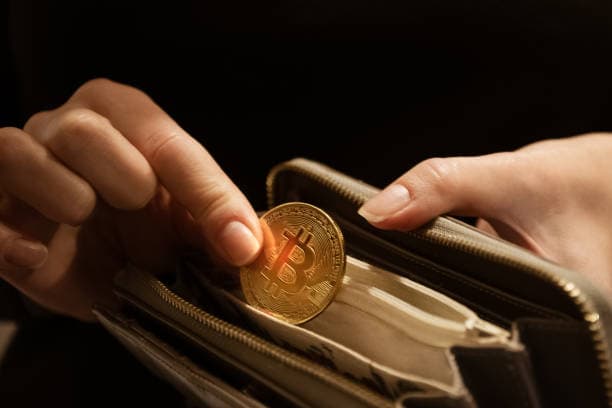Is Bitcoin trading legal in China? This is the question you need to know!
When we talk about Bitcoin and the trading of cryptocurrencies, one of the most common concerns for many people is "Is Bitcoin legal to trade in China?" With the rise of cryptocurrencies, and in particular the growing market capitalization and influence of Bitcoin, it is especially important to understand the legal environment in different countries, especially in China. For investors looking to enter the market, understanding the legality issues will not only help avoid legal risks, but will also give you peace of mind when trading Bitcoin. In the following article, I will take you on a deeper dive into the legality of Bitcoin trading in China to help you better understand how this issue works.

Current Legal Environment of Bitcoin in China
The trading and possession of Bitcoin and other cryptocurrencies is not entirely illegal in China, but the government has taken a more conservative stance on it and has imposed a number of restrictions.In September 2017, the People's Bank of China and several other governmental agencies issued a ban on ICOs (Initial Token Offerings) and cryptocurrency trading, calling for the closure of all platforms involved in Bitcoin trading. This policy demonstrates that the Chinese government takes a strict regulatory stance on Bitcoin trading and strongly restricts cryptocurrency trading and investment by domestic users.
Despite this, there is no explicit ban on the "holding" of Bitcoin in China. This means that although Bitcoin trading platforms are banned, it is theoretically legal to trade on offshore platforms and hold Bitcoin in your wallet. However, as the Chinese government's policy on cryptocurrencies continues to be adjusted, users will need to keep a close eye on policy changes.
Why the Chinese Government is Maintaining a High-Pressure Approach to Bitcoin Trading
The main reason why the Chinese government maintains a high-handed attitude towards Bitcoin and other cryptocurrencies is financial risk control and capital outflow concerns. The anonymity and decentralization of Bitcoin and other cryptocurrencies make them potential tools for capital outflow, money laundering and illegal activities. In order to maintain the stability of the financial system and control foreign exchange, the Chinese government must impose strong regulation on cryptocurrency transactions.
Bitcoin's extreme price volatility also puts investors at a higher risk. The Chinese government is worried that people will invest large amounts of money in the high-risk cryptocurrency market, which could affect the country's financial stability. This is one of the reasons why the government has imposed restrictions on ICOs and Bitcoin trading.
Changes in the Chinese Government's Cryptocurrency Policy and Possible Future Directions
The Chinese government's cryptocurrency policy has changed several times since 2017, showing that the government's attitude and stance in this area is not static. Early policies focused on cracking down on Bitcoin's trading platforms, blocking a large number of domestic exchanges. Subsequently, there has also been a strong crackdown on Bitcoin mining, categorizing it as an environmental protection issue and requiring local governments to ban cryptocurrency mining.
As the global digital currency market develops, China's attitude towards cryptocurrencies has begun to show some signs of relaxation.2023 Since 2023, the Chinese government has begun to explore the implementation of a digital renminbi (eCNY), suggesting that China's policy on digital currencies is moving towards a formalized and state-led approach. This change has also led some analysts to suggest that China may make further adjustments to its policy on non-state-issued cryptocurrencies such as Bitcoin in the future.

Restrictions on Legal Trading of Bitcoin in China
Even though it is not illegal to hold Bitcoin, there are still a number of difficulties in trading Bitcoin within China. One of the main constraints is that domestic exchanges are closed and it is difficult to find legal ways to trade directly. As a result, most Chinese users are forced to trade through international platforms, and the legality of these platforms is another risk.
Due to China's foreign exchange control policy, ordinary citizens also face difficulties in remitting funds when trading in Bitcoin. These factors make Bitcoin trading in China relatively risky and investors need to be particularly careful.
How to Safely Trade Bitcoin in China
Although there are certain legal and operational barriers to trading Bitcoin on Chinese soil, you can still choose to trade on cryptocurrency exchanges outside of China if you need to. You will need to choose a reliable and large international exchange. Exchanges like Binance and OKX offer not only Bitcoin trading, but also a wide range of cryptocurrency varieties and instruments to meet the needs of different levels of investors.
However, when choosing an exchange, investors need to pay attention to the security and compliance of the platform. Some exchanges require users to go through a KYC (verification of identity) process to ensure security and compliance. Investors should choose an exchange with a good reputation and a global regulatory background to avoid fraud.
Legal Risks in Bitcoin Trading and How to Avoid Them
The greatest risk of trading Bitcoin in China comes from the uncertainty of local policy. While it is not currently illegal to hold Bitcoin, there may still be legal risks if the transaction involves cross-border capital movements or improper exchange operations. To minimize these risks, investors should comply with local laws, avoid anonymous trading, and choose legally registered and regulated trading platforms.
Some cryptocurrency trading activities may themselves involve illegal operations such as money laundering or fraud, and investors should avoid participating in such activities to avoid legal disputes.
Frequently Asked Questions Q&A
Q1: Is it legal to hold Bitcoin in China?
A1: Currently, holding Bitcoin in China is not illegal per se, but the government has strict restrictions on cryptocurrency trading and capital outflows, so care needs to be taken.
Q2: Is it illegal to trade Bitcoin on international exchanges?
A2: Although domestic exchanges have been banned, it is not illegal to trade on legitimate cryptocurrency exchanges outside of China. You still need to pay attention to the compliance of capital flow.
Q3: How do I secure my Bitcoin transactions?
A3: Use a reputable and regulated exchange, enable security measures such as secondary verification, and avoid storing large amounts of money on exchanges by choosing a professional wallet to keep your Bitcoins in.














